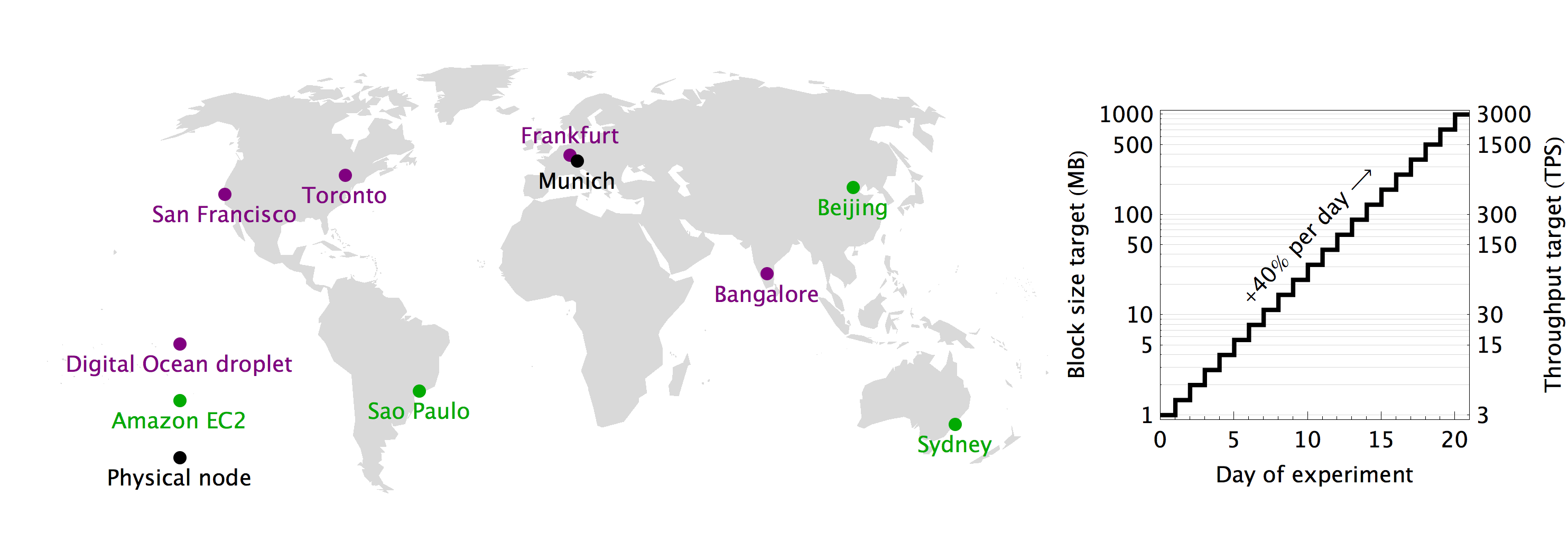Motivation
Scaling has been one of the biggest issues in the recent history of Bitcoin. While a few years ago, only cents were needed to transfer to another wallet, nowadays fees regularly rise above 10$, and it still takes hours to confirm the transaction.
The main reason for this is, that only blocks that are smaller or equal to 1MB in size can be mined, effectively limiting the number of transactions that can be included in one block.
There have been many scaling proposals, the most widely known one being the User Activated Hard Fork called "BitcoinCash" that simply increased the maximum block size to 8MB, leaving more space for transactions, in theory resulting in smaller fees. This concept is currently lacking support, that's why there are currently blocks mined with less than 15kB.
BUIP 065: Gigablock Testnet Initiative
But why stop there? There is currently a proposal for an experiment out there, that would create a completely separate Bitcoin blockchain (Testnet) with one major difference: One Gigabyte Blocks.
Yes, you read that correctly. Increasing the block size by 1000.
The Bitcoin blockchain is currently seven years old and just surpassed 130GB in size. If it had 1GB blocks from day one, it would be about 400TB by now.
One-Gigabyte-Blocks, so called Gigablocks would allow more than 6000 transactions per second. (The current Bitcoin system can handle 6 tx/s, Visa and MasterCard currently handle ~3000 tx/s)
Test setting
The test will go as follows: A global Gigablock Testnet with eight high powered nodes will be established and stress tested. The load of transactions will be increased by 40% every day for 20 days until 6000 tx/s are reached.

Funding
12 People from Bitcoin Unlimited, nChain and the University of British Columbia will work together to make this happen. BU and nChain each agreed to give 150.000$ per year for a duration of 5 years, so the total project budget runs at 1.5 Million. About half of that will go into the server cost and the other half will be paid out as wages for researchers and contractors.
Possible results
The researchers might find out that it is simply impossible to handle that many transactions on a global blockchain. Then, the development of off-chain or sidechain solutions has to be started.
It is very likely though, that the experiment will show clearly that a world based on crypto is possible and that Visa-Like throughputs are possible. This would undoubtedly increase the trust in Bitcoin as a world currency and in blockchains as the medium of the future in general.
looking forward to seeing the results
more interesting will be seeing attacks on it however as it's a security compromise